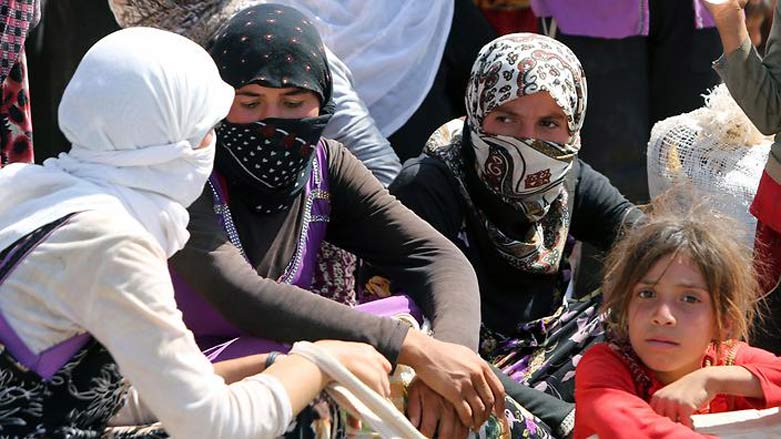13 Yezidi families returned from Syria to Shingal

ERBIL (Kurdistan 24) – Iraq’s Security Media Center on Tuesday announced the return of 13 Yezidi (Ezidi) families, consisting of 70 individuals, from Syria to their homes in Sinjar (Shingal).
The families had been staying at the Newroz camp in Al-Hasakeh Governorate, a statement from the security media center said.
The Ezidis were transferred to their homes in Shingal district in a joint security supervision effort “after security clearances and verification of their identification,” it added.
Read More: Syrian Kurdish authorities return 27 freed Yezidis to Shingal
The emergence of the Islamic State and its violent assault on Shingal in 2014 led to the displacement of hundreds of thousands of Ezidis. Most of them fled to the Kurdistan Region while others resettled in neighboring countries in the Middle East or Western states.
Others were not as lucky and remained stranded in the war zone, where they experienced atrocities and mass executions at the hands of the terror group for years.
Militants subjected women and girls to sexual slavery, kidnapped children, forced religious conversions, executed scores of men, and abused, sold, and trafficked females across areas they controlled in Iraq and Syria.
Read More: VIDEO: Yezidi woman, four children reunited with family in Kurdistan Region camp
Almost four years have passed since the 2015 liberation of Shingal by Kurdish Peshmerga with support from the US-led coalition. Since October 2018, the area has been under the control of Iraqi forces and Shia-dominated Hashd al-Shaabi militias.
On Monday, the Kurdistan Region’s office dedicated to the rescue of Ezidis kidnapped by the Islamic State announced that since 2014, the office has saved over 3,476 of the 6,417 Ezidis the terrorists had abducted. However, it added that 2,941 individuals remain missing.
Before the 2014 attack, there were roughly 550,000 Ezidis in the Kurdistan Region and Iraq.
Editing by Karzan Sulaivany
